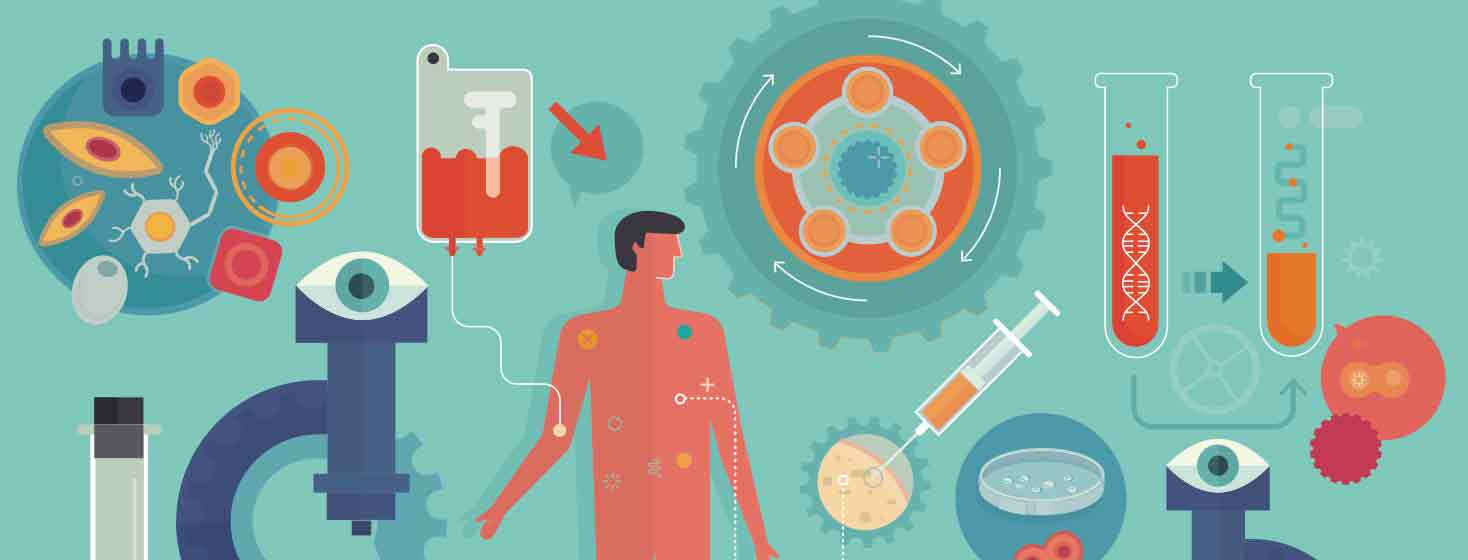Types of Health Facilities
The management of a chronic condition can be complex and often confusing. From constant self-observation to managing our condition - it’s not easy.
Sometimes, we need some extra help when symptoms or side effects get out of our control. When that happens, where do we go?
In this article, we will discuss the different types of health facilities and when we should use them. Hopefully, this article can help with saving you time, money, and stress while managing your chronic condition.
Types of health facilities
Hospitals
To start, hospitals are one of the most commonly used health facilities. They offer most services that any person could need and are typically organized into intensive and non-intensive care.1
- Intensive care is for a serious illness or an injury, often going through the 'emergency room.'
- Non-intensive care would be things like surgery, childbirth, medical procedures, and rehabilitation. Intensive care often leads to non-intensive care after initial admittance to the hospital via the emergency room.
While hospitals can accommodate most medical situations, they might not always be the best place to go. Often, a hospital visit is a more expensive option; going to the hospital can also risk exposure to other illnesses.
Procedures that are performed at hospitals are often also performed at specialized clinics.
Specialized clinics
Specialized clinics are a great option for people who are aware of the procedures that they will need. Some examples of specialized clinics would be:1
- Birthing centers
- Dialysis centers
- Orthopedic and rehabilitation centers
- Imaging and radiology centers
- Ambulatory surgical centers
Making appointments with specialized clinics is beneficial for both the patient and the medical system.
Clinics are more cost-efficient and service-specific for the patient. This limits the risk for immune-compromised patients by avoiding waiting rooms with unknown illnesses.1
Specialized clinics also reduce the strain on hospital workloads, making hospitals run more efficiently for intensive care cases.1
General clinics and medical offices
Clinics are places for people to receive diagnosis and care, usually in instances when there is not a sense of urgency. This is where a primary care physician or a specialist would practice.
There are walk-in clinics as well, but most often appointments are made to see specialists or primary care physicians.
If you are managing a chronic condition, this is likely where you would go to get check-ups and lab work done.
Urgent care
If you were hurt or ill, but not severe enough to go to the emergency room, urgent care is the place for you.
Often, urgent care can perform the necessary procedures for mild, unexpected health concerns. They can perform viral diagnostics, set broken bones, cast, stitch wounds, and other things of that nature.1
If the problem is too severe, they will call an ambulance to take you to a hospital.
The benefit of going to urgent care is that the wait times are often less and there are typically more urgent care facilities than hospitals.
Once again, they provide greater efficiency for the patient and the medical system by keeping hospital loads down.
Community health centers
Community health centers have made primary care more affordable and accessible for people of diverse backgrounds, cultures, and socioeconomic standing.
With translation services and transportation accommodation, these centers enable most people to have access to health screenings, diagnostics, and health education.2
As federally-funded centers, they have helped millions of low-income patients to gain access to comprehensive primary care regardless of insurance.
Hospice and palliative care centers
These are centers for people who have a chronic condition that is no longer manageable.
Hospice centers are health facilities for end-of-life care. A patient would enter hospice when a chronic condition has become terminal.3
Palliation, on the other hand, does not represent end-of-life care. It is care for those with chronic conditions that are not showing improvement but are not terminal.3
Palliative care provides holistic comfort and support for a patient with unmanageable chronic conditions.3
Telehealth
This is an option enabled by advances in communication technologies. While telehealth isn’t technically a health facility, it is an option for those who have medical concerns but are not able to leave their home.
Typically, using video, patients are able to meet with their doctor and discuss symptoms and management. In some cases, patients are able to be remotely monitored by their medical team.
This option is great for lowering the cost of health care and removing the patient from potentially compromising situations. During a time of a pandemic, as we find ourselves now, telehealth offers a solution that helps protect those with chronic conditions from infection.
What health facilities are best for you?
The best health care facility for you could change by the day.
If you are having a serious medical emergency, it’s recommended to call 911 and get to the hospital.
Perhaps it’s severe, but you want to get checked quickly, without an appointment; urgent care might be best.
For routine checkups and lab work to manage your chronic illness, the clinic or medical office would likely be the best option.
If you are uninsured or in between insurance coverage, a community health center might be a good place to visit.
If you want to stay home where you are comfortable and safe, then telehealth has you covered.
Know your options
As patients managing chronic conditions, we have options for management, medication, and medical facilities. Some health facilities are preferable in different situations.
Hopefully, this article has helped with understanding your options and what medical facilities are best for your situation.

Join the conversation